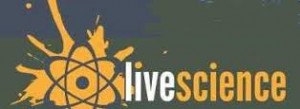This website (LiveScience) does not just deal with geography topics specifically, as it offers a broad range of news sources and studies relating to a variety of scientific fields. Many of these stories relate to physical geography. The website offers a variety of news stories, videos, and images concerning topics like health, space, and animals. The main tabs that I focused on covered “Planet Earth” and “Space.” The stories found on the “Planet Earth” included a large range of topics that we have discussed in class, such as the effects of global warming, access to freshwater, and the state of coral species who are reacting to warmer waters. The “Space” tab provided information such as the effects asteroids could have on Earth and Earth-size planets that could support life. All of these news stories are easy to read and include links to further scientific resources that could be used to learn more. Most stories are also accompanied by videos or photos to help illustrate the story.
LiveScience also shows the scientific topics of the day that are “trending,” such as global warming or military and spy technology. This site also offers links to other additional resources that relate to these scientific topics.
Overall, it is a helpful compilation of recent news stories that relate to a variety of scientific topics. They are fairly easy to read and can be understood by the general public. Based on our recent discussions in class, websites like these could be a helpful link to bridging the gap between the scientific community and the public on matters like global warming.
To visit the site: http://www.livescience.com/.



I focused on the USGS Education site and it seems to me that these methods of communicating science topics and research results to general audiences are a great way to start useful discussions. Including videos and animations in these websites can attract everyone from kids to undergraduate students. I am also happy to see that many topics are combined into one website. You should follow the IFLS page on Facebook (https://www.facebook.com/IFeakingLoveScience?fref=nf) for this type of things!
I’m not sure if my previous comment was published.
It is truly great to see these websites combining communication methods to share as much information as possible with large audiences. Adding videos, animations, and pictures can draw the attention of everyone from kids to undergraduate students. Communicating science-related information and research results is so crucial and I am happy to see these efforts!